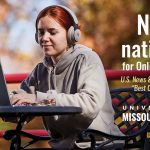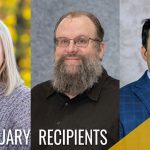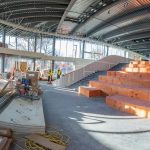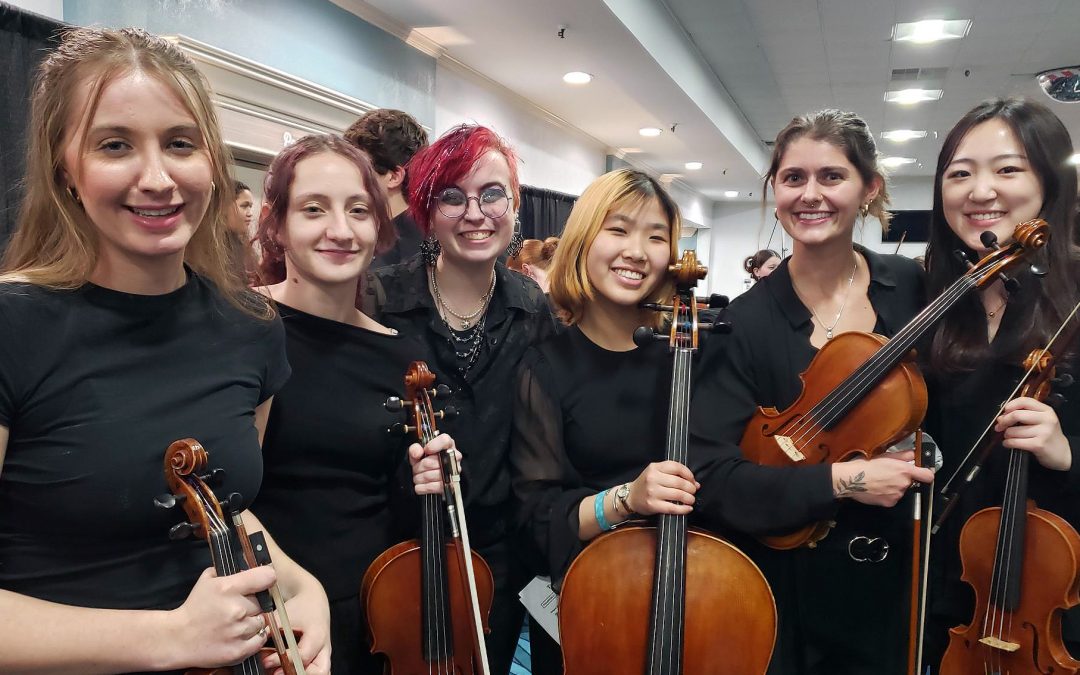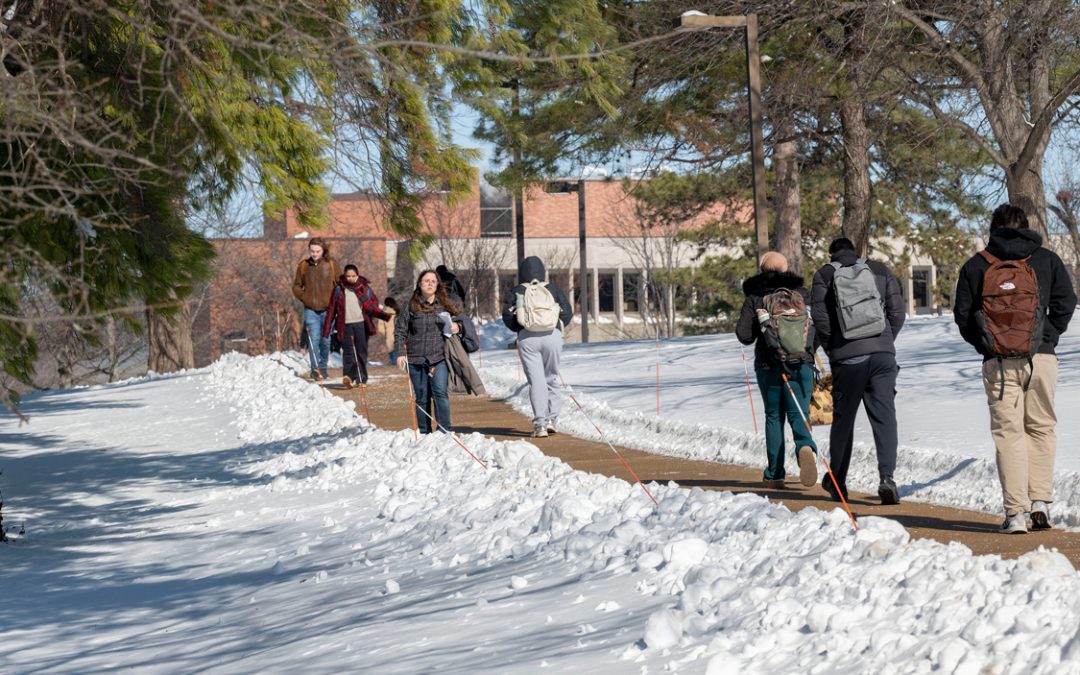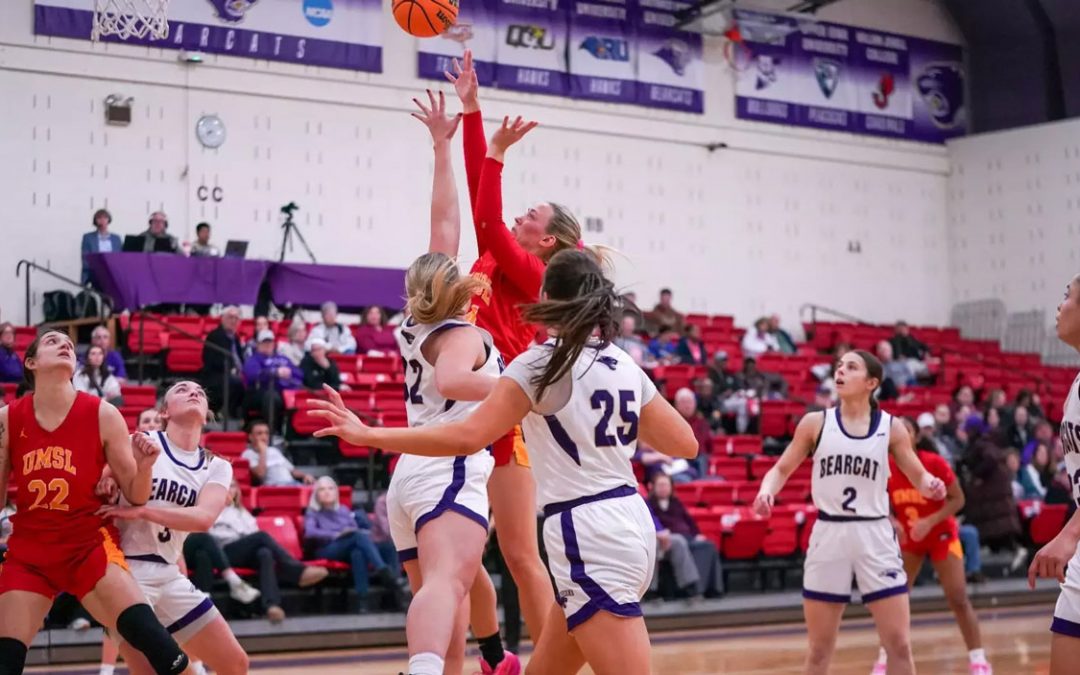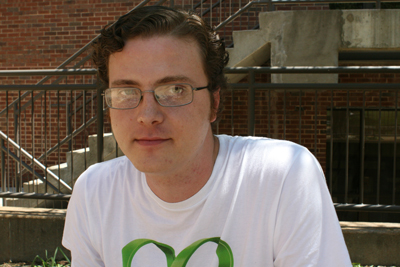
Travis Abbott, a double major in computer science and mathematics, graduated May 11 from UMSL. He helped co-author three papers with Uday Chakraborty, professor of computer science at UMSL. (Photo by Myra Lopez)
Travis Abbott graduated from the University of Missouri–St. Louis Saturday with more than just a degree; he also took with him the title of published author.
Abbott, a double major in computer science and mathematics, has co-authored three papers along with Uday Chakraborty, professor of computer science at UMSL. The most recent paper was published in the prestigious journal Energy, an international, multi-disciplinary journal in energy engineering and research.
“Given that Energy is one of the top journals in the field, this is a big deal for an undergraduate student,” said Chakraborty.
The paper was titled “PEM fuel cell modeling using differential evolution.” In the research they applied a new differential evolution algorithm to solve a problem of deep practical interest in the field of energy research.
The pair’s research relationship began a few years ago when Abbott was a student in one of Chakraborty’s computer science courses.
“It didn’t take me long to see that he was not an ‘average’ student,” Chakraborty said. “Not only was he ahead of the rest of his class, he showed a passion for computer science that was rare in students.”
Abbott said he came to UMSL not just to get a degree but more importantly to get an education. So when he felt the course wasn’t challenging enough for him, he expressed his concern to Chakraborty, who Abbott said was receptive and took action to remedy the situation.
“It started out with him giving me a few papers to read in his specific field of research, which moved to him supporting me as an undergraduate researcher from his National Science Foundation funded project, and culminated in me co-authoring the papers,” Abbott said.
He also took a graduate course with Chakraborty as an elective for his undergraduate program.
“I started giving him assignments and projects at levels far beyond the scope of the course he was enrolled in, and he didn’t disappoint me,” shared Chakraborty, adding that “Much to my delight he asked for more. That is when I initiated him to differential evolution and fuel cell design optimization.”
Abbott said that co-authoring a paper is “frightening, stressful, difficult and totally worth it.” He likened his foray into research as someone learning to swim. There is the initial apprehension, followed by hard work, and in the end, success.
“Luckily, I had a good mentor in the Department of Mathematics and Computer Science that helped me take that first plunge,” he said. “I’m very grateful for that first push off into the deep end.”
Ultimately, he said it’s extremely satisfying to get that long awaited email that reads; “Congratulations! Your paper has been accepted for publication in …”
Going forward, Abbott has his eye fixed on PhD study. He also works at The Genome Institute at Washington University in St. Louis.









